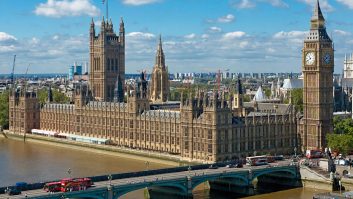UK broadcasting regulator Ofcom seems to be having a change of heart over its decision to auction off almost all of the upcoming analogue spectrum that will be freed up when analogue broadcasting is switched off. Up until now Ofcom has repeatedly stated that it is obliged to see market forces at work, much to the chagrin of Britain’s network broadcasters who were seeking ‘gifted’ spectrum to allow them to simulcast and then migrate channels to HDTV, writes Chris Forrester.
Ofcom says it has received more than 750 separate claims and proposals for use of this spectrum, much of which doesn’t become available until 2012. The first sign of a softening came from Ofcom boss Ed Richards, who told parliamentarians last week that he was keen to settle the dispute, which has created record levels of objections from broadcasters and other interested parties. However, he also stressed that Ofcom believed that broadcasters had sufficient spectrum for between four and six HD channels on terrestrial TV. “We have got no interest in having a fight on the matter,” he told MPs, adding that meetings would be taking place over the next few weeks to discuss the problems. “It is not a matter of ideology for us. It is a matter of technical fact.”
ITV boss Michael Grade, speaking on 19 April at the Voice of the Listener & Viewer (VLV) conference, called on the government to intervene in the HDTV debate by allowing a slice of freed-up spectrum to be used as part of a Freeview HDTV service. “Closing the door to HD on Freeview would undermine that principle and create an HD divide,” he said. Jocelyn Hay, the chair of the VLV group, said it had already been lobbying the government to intervene in favour of HDTV on Freeview.
Barely an hour later, at the same conference, Richards said that Ofcom would look anew at the “public interest case” for making special provision for gifting spectrum to the main networks for HDTV use. Professor Steven Barnett commented at the conference that Ofcom did appear to be moderating its views. Richards, however, stated again that broadcasters had already been gifted terrestrial spectrum (for their existing digital services). “That said, we have no obligation, duty or responsibility to maximise revenues for the (UK) Treasury.”
If Ofcom does soften its stance and recommend ‘gifting’ sufficient spectrum of a five-channel simulcast set of HD signals they would have to be transmitted in MPEG-4 advanced compression, which means new set-top boxes would have to be bought.
The second problem, and potentially damaging to the Treasury’s income expectations, is that the ‘gifted’ spectrum would no longer be available for the market, and the mobile phone operators (or the other 750 potential bidders for bandwidth) would be unable to get their hands on spectrum. This ‘market-led’ demand would inevitably create a significant shortage of capacity and a probable rise in the price at any subsequent market auction – which might put larger-than-expected cheques into the Treasury’s coffers. Could this be a ‘win-win’ scenario for all?







